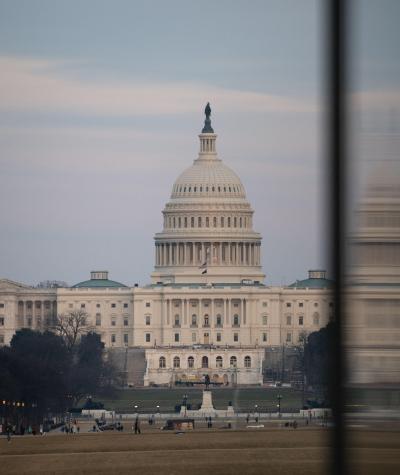Polling shows that the public overwhelmingly disapproves of members of Congress trading stocks. This disapproval makes sense considering the lack of enforcement of current laws governing stock trading. But the lax enforcement of disclosure requirements for stock trades is just one example of the larger, systemic problem of weak ethics committees in Congress. Fixing the problem of accountability could create a more ethical culture to combat the stock trading issue.
Since 2020, at least 60 members of the House have violated the Stop Trading on Congressional Knowledge (STOCK) Act. But the House Committee on Ethics has only publicly investigated 8 of those 60 potential violations, and effectively dismissed all 8 of the investigated cases. Five of those matters were dismissed outright and 3 appear permanently shelved without any public resolution.
The Committee on Ethics dismissed these cases despite the Office of Congressional Ethics (OCE) finding substantial reason to believe that the lawmakers violated the STOCK Act. Many of the OCE’s investigations were impeded by House members refusing to cooperate.
Unlike the House, the Senate does not even have an independent ethics committee to initially investigate potential violations. So, it is no surprise that in the Senate, where at least 12 members have violated the STOCK Act, the Senate Select Committee on Ethics has not investigated any of the matters.
Currently, the lack of accountability for STOCK Act violations is the norm, not the exception, for enforcement of ethics violations overall. From 2020 to 2022, the House reported publicly investigating approximately 79 matters, and issued 38 penalties. Of those 38 penalties, 37 were penalties associated with refusing to wear a mask or bypassing security screening.
From 2020 through 2021, the Senate Ethics Committee investigated 59 matters and there were 0 penalties. Because the Senate Ethics Committee releases its investigation data at the end of each year, we currently do not know how many matters they have investigated in 2022.
Voters deserve ethics bodies that will prioritize investigating ethics matters and enforcing ethics laws. The data clearly shows that the House and Senate ethics committees currently do not.
To make ethics enforcement more meaningful Congress should make the following changes: In the House, OCE should be empowered to make reports about lawmakers who refuse to cooperate public immediately. This would show voters if their representatives tried to impede an ethics investigation without the significant delay from the current rules.
In the Senate, they should create an independent ethics committee like OCE. The current Senate ethics committee has demonstrated a lack of interest in investigating potential ethics violations, even as senators foster a public perception of corruption. Creating an independent ethics committee in the Senate will build the public’s confidence that the lawmakers prioritize the public’s interests.
Although legislation to address the stock trading problem in Congress has stalled, other meaningful reform is still within reach. Strengthening enforcement of all existing ethics rules could begin restoring the public’s trust in Congress.

